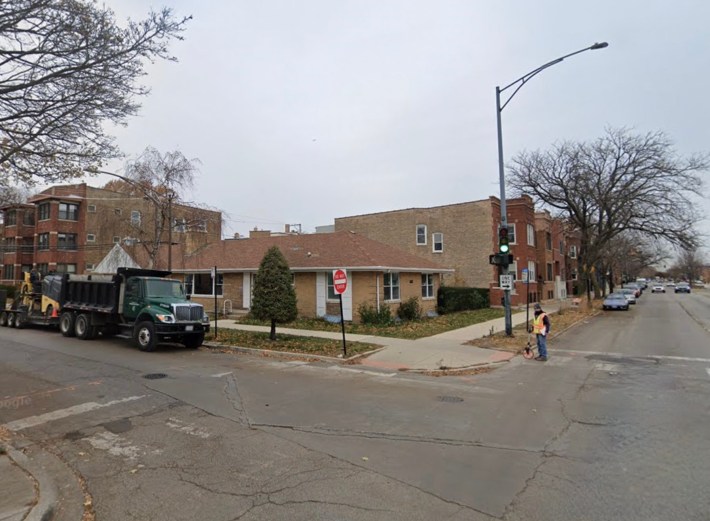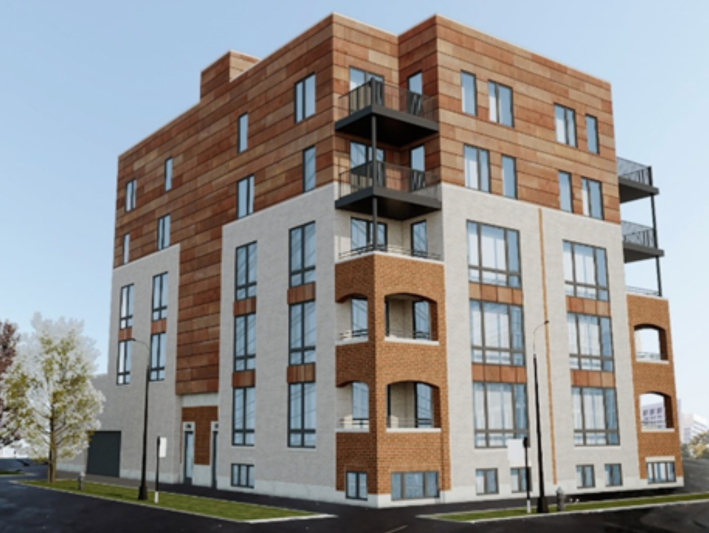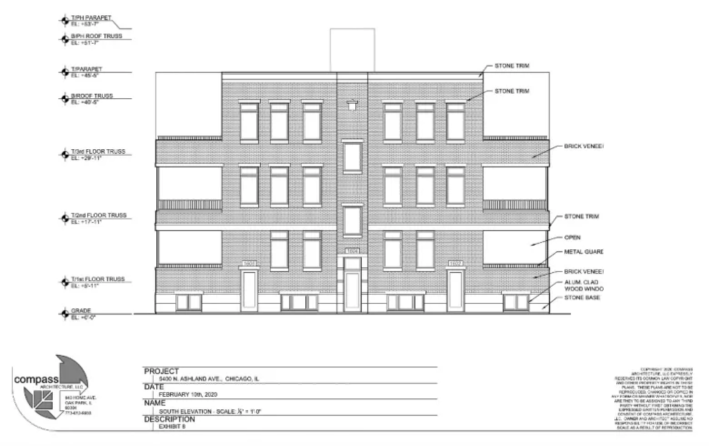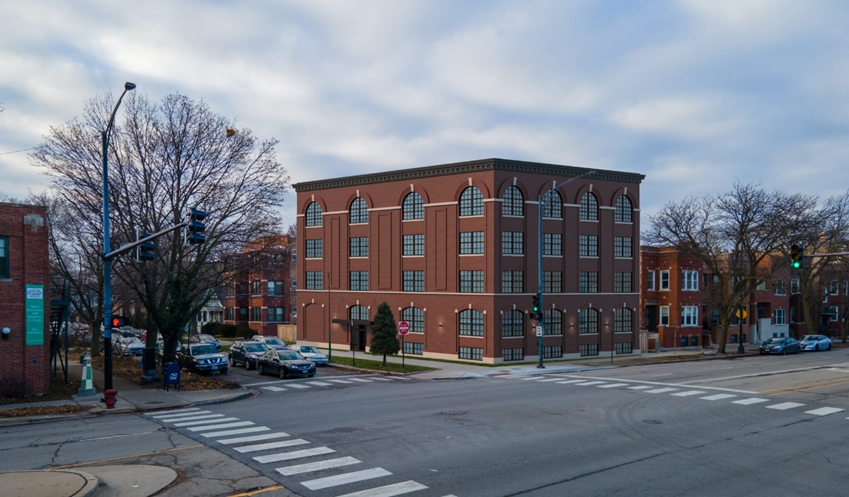On Thursday, Ald. Andre Vasquez (40th) shared an exciting update: a hotly contested transit-oriented development proposal in Andersonville will be moving forward. The downside is that there will about 17 percent fewer units than originally proposed, and 25 percent fewer affordable ones. Instead of the previously-rejected 18-unit building with four affordable units, Andersonville will get a 15-unit building with three affordable homes instead.
The decision represents a huge upgrade from the high-cost, single family home that currently occupies the site. But it’s still a downgrade from the prior proposal—and it illustrates the larger hurdles facing efforts to build housing in wealthy parts of the city.

As Streetsblog noted two weeks ago, the previous proposal to replace the $750,000 single-family home at 5400 N. Ashland Ave. was rejected by Ald. Vasquez, after neighbors objected during his community zoning process, in part due to the height of the building. Vasquez committed to still trying to get something done at the site, and his efforts paid off. The developer updated the proposal to a shorter, four-story development (see image at the top of this post), which Vasquez is now supporting.

The alder deserves real credit. The affordable units will make a real difference to three families in the Lincoln Square community area, one of the wealthier parts of the city (the median household income of Lincoln Square is about 17 percent higher than that of the entire city). And adding market-rate units will give first-time homebuyers more options, and help keep Chicago a little bit more affordable. Many of the local Not In My Backyard types will continue to grumble, but Vasquez took a courageous stand that will make his Ward more affordable and welcoming.
However, while Vasquez did the right thing, this is no way to solve a 120,000-unit housing crisis. The process behind 5400 N. Ashland Ave. highlights three things to keep in mind when we talk about affordable housing in the future.
1. Fewer units means fewer affordable units. The proposal faced pushback from neighbors about both the height and the perceived lack of affordable units. But those two requests for smaller buildings with more affordable housing are simply incompatible. With sky-high construction costs, lower-cost affordable units are money losers. They have to be subsidized by the market-rate units in a development. If you reduce the number of market units, a developer won’t be able to raise the money to build the affordable units. That’s exactly what happened here.
2. Time is money. A redevelopment was first proposed at this site in 2020 with only seven units. For four years, this land has been sitting there, as different owners wrangled with community groups and the alder about a path forward. Community input is important, and it’s great that the approved plan includes more units than the 2020 version. But this slow-moving process has meant that we’ve gone years without more housing at the site. This process is also part of why it’s so expensive to build in Chicago. When developers have to tie up resources in projects that take years to get approved, their costs go up, and so do the prices of new units.

3. This is the best-case scenario. This developer likely only bothered to make a proposal, and then change the number of proposed units, in this case because Vasquez has a strong pro-housing reputation. But in neighborhoods where alders and/or residents are more hostile to development, these projects don’t even get proposed in the first place. Without a more transparent and consistent process, some parts of the city will remain off-limits to more dense and affordable units.
To truly address our affordable housing crisis, Chicago needs to get serious about making it easier to build more units everywhere. In particular, measures to legalize two- and three-flats citywide could go a long way to addressing our housing crisis.
Ald. Vasquez gets it. In his statement supporting the development, the alder wrote that “We need to have a more proactive conversation with neighbors, outside the context of individual zoning proposals, about the need for affordable housing in the 40th Ward, and what a sustainable strategy toward achieving that goal could look like. We hope to schedule a follow up community meeting later this year to begin that discussion.”
That’s real leadership. Vasquez has already shown that he’s willing to stand up for more housing in his own ward. He’s also backed citywide reforms to the zoning code, including legalizing three-flats. As a potential candidate to serve at the next chair of the zoning committee, let’s hope he can do a lot more to support more housing, affordable and market-rate, in every neighborhood across the city.




